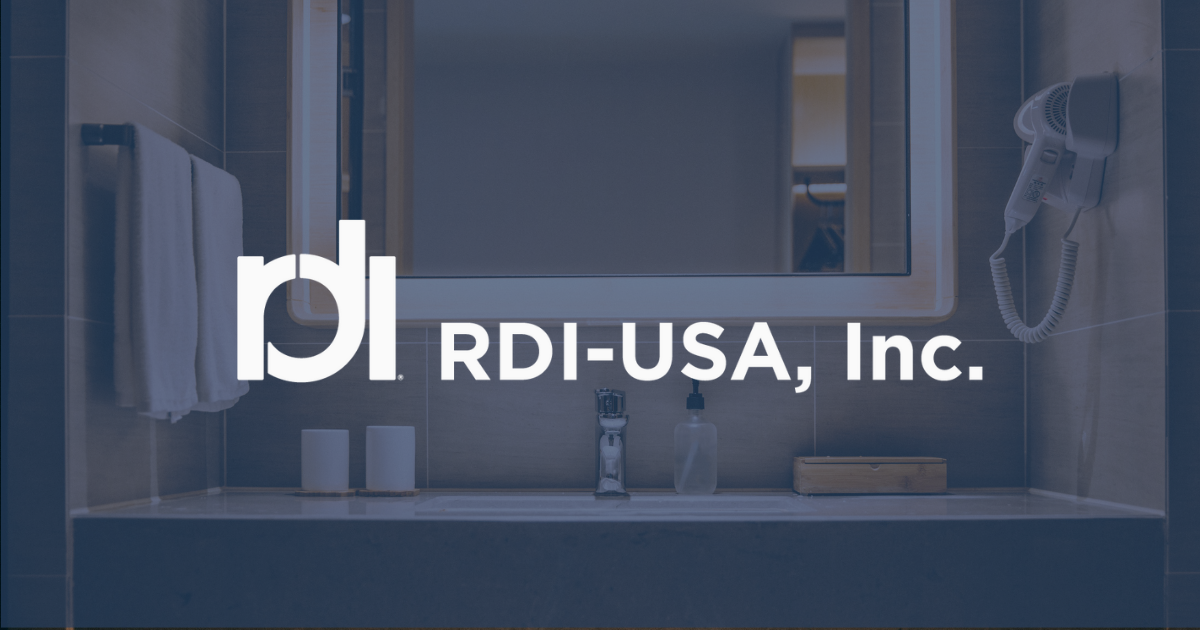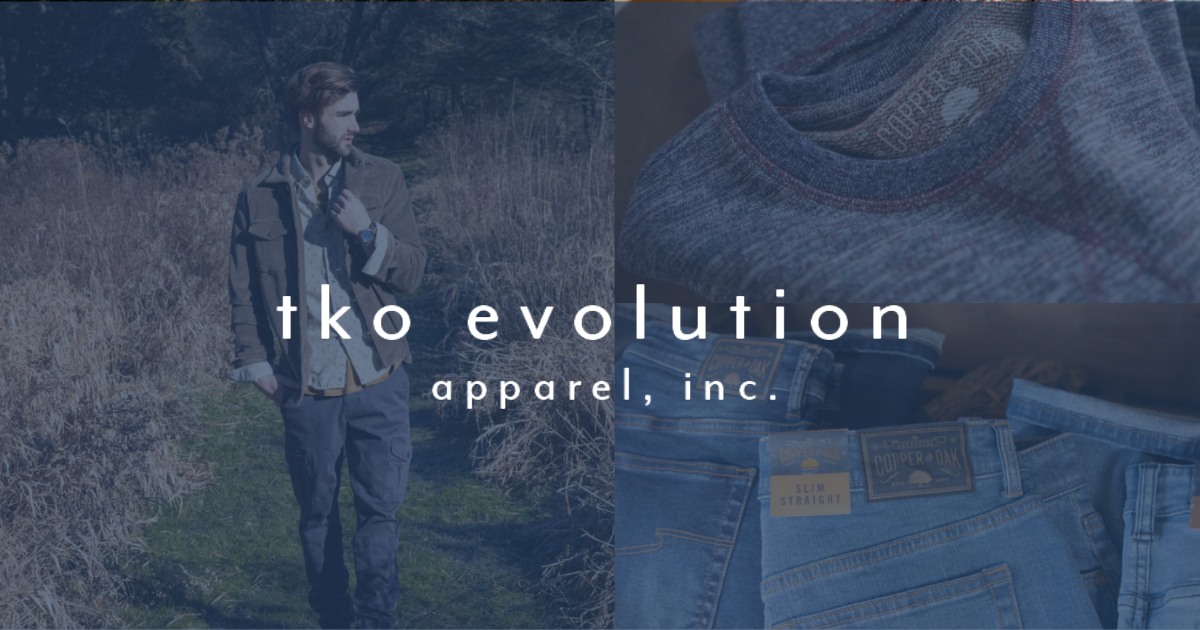RDI-USA, Inc. is a global hospitality leader whose 2,000+ products serve major hotels and airlines worldwide. Faced with a rising demand for sustainable solutions, RDI teamed with Good.Lab to embed sustainability throughout its operations. By focusing on reducing impacts and creating a clear sustainability strategy, RDI differentiated itself in a highly competitive market.
RDI’s ESG & Sustainability Goals:
- Create a holistic sustainability strategy tailored to address the most impactful areas for RDI.
- Respond to customer requests for sustainability data.
- Get ahead of growing interest in sustainable hospitality products.
RDI’s ESG & Sustainability Drivers:
- Desire to become a more sustainable company and reduce their organizational impact.
- Ability to differentiate their products and company.
- Prepare for market-driven and regulatory pressures to report on sustainability.
- Support customer sustainability efforts by providing sustainable products.
RDI’s Sustainability Journey with Good.Lab
Driven by a deep commitment to sustainability, RDI had bold ambitions but needed specialized expertise to develop a comprehensive strategy and take its program to the next level. That’s where Good.Lab came in with expertise in materiality and benchmarking assessments, GHG accounting, and establishing internal governance structures to help RDI build a cohesive and scalable sustainability program.
Although RDI initially approached Good.Lab for support on their sustainability reporting, they significantly increased our joint project when the impact sustainability could have in differentiating their company became clear.
RDI’s Sustainability Challenge: Staying Ahead of Market Demands
In 2024, RDI established its first sustainability goals—complete with emissions reduction targets—and formed a cross-functional team to drive progress. Milestones included publishing their inaugural Greenhouse Gas Emissions Report, adopting a Corporate Social Responsibility Policy, and conducting a facility energy audit. Currently, RDI is assessing additional emissions reduction measures, recognizing that strategic sourcing is key to creating sustainable products and lowering its overall carbon footprint.
RDI has embraced the opportunity to go beyond compliance and is working on improving its product database to include product-level sustainability data, such as certifications and the use of recycled content. This will enable a data-driven approach to integrating sustainability into their product strategy. RDI wanted to anticipate the growing need for sustainable products and use sustainability as a differentiator to grow the business. Working with Good.Lab has been critical in helping them to refine their strategy to meet those goals.
As a values-driven company, we recognized that proactively integrating sustainability into our culture and products was crucial for future-proofing our business. Good.Lab’s services and software aligned perfectly with our vision, enabling us to achieve our goals.
How Good.Lab’s Climate Experts and Software Guided RDI Toward Their Sustainability Goals
Good.Lab’s climate experts deployed GHG emissions software to measure RDI’s Scope 1, 2, and 3 emissions. We then combined those insights with RDI’s materiality and benchmarking assessment data to help them set ambitious yet achievable emissions reduction goals and refine their overall sustainability strategy. Here’s how Good.Lab helped RDI solve its sustainability challenges:
- Software + Consulting: RDI benefited from the expertise and guidance of Good.Lab’s consultants working in tandem with our precision tool to measure their GHG emissions and continue to improve their annual EcoVadis reporting. Good.Lab’s experts helped RDI set up the governance structures to collect a comprehensive data set, which our software calculated to give them an accurate emissions inventory to set practical reduction goals and pinpoint high-impact reduction opportunities.
- Precise GHG Measurement: To meet targets and respond to customer requests, RDI used Good.Lab’s GHG Emissions software to map its carbon footprint across Scope 1, 2, and 3—capturing detailed coverage of key emissions sources.
- Materiality Assessment + Sustainability Benchmarking: RDI sought clarity on how to advance its sustainability program. Through drawing on Good.Lab’s extensive benchmarking library and software-based materiality assessment, RDI, confirmed that product sourcing is a critical area for driving sustainable progress.
- ESG Target Setting: Informed by their carbon footprint and benchmarking results, Good.Lab helped RDI set measurable, achievable, and realistic emissions reduction targets for Scope 1 and 2 emissions.
- EcoVadis Expertise: As an approved EcoVadis Training Partner, Good.Lab guided RDI through its annual EcoVadis reporting, establishing internal reporting capabilities, policies, and documentation to drive continuous improvement.
Good.Lab’s ESG experts went above and beyond, providing us with a highly accurate greenhouse gas emissions inventory and helping us refine our data processes. With this data-driven approach, we can decarbonize more effectively, share our emissions impact with partners across our value chain, and make better procurement decisions.
Outcome: RDI Built a Comprehensive Data-Driven Sustainability Strategy to Build a Competitive Advantage
RDI took a proactive approach by measuring greenhouse gas emissions, reporting to EcoVadis over multiple years, setting ambitious goals, and developing a comprehensive sustainability strategy. As a result, the company can now respond swiftly to any future data requests and is embedding sustainability across its operations and products. Here are some notable strides RDI has made in partnership with Good.Lab:
- Confidence in meeting supply chain sustainability data requests: With multiple EcoVadis submissions completed and an in-depth emissions inventory, RDI is now equipped to answer data requests they receive.
- Data-driven sustainability targets: RDI has used its climate data to create realistic targets that it can confidently share with its stakeholders and be held accountable for.
- Industry-leading sustainability strategy: RDI now has the sustainability data, internal governance structure, and targets to compete with other companies in their sector.
- Sustainability reporting: With sustainability data collected, targets, and strategy in place, RDI created its inaugural greenhouse gas emissions report and is now preparing to expand this report to a more comprehensive sustainability report in 2025.
By partnering with Good.Lab, RDI built an industry-leading sustainability strategy rooted in accurate data and the right expertise to surpass customer expectations. With these enhanced capabilities, RDI is now positioned to publish its first annual sustainability report and make steady progress toward its newly created goals—further solidifying its leadership in the hospitality industry.






